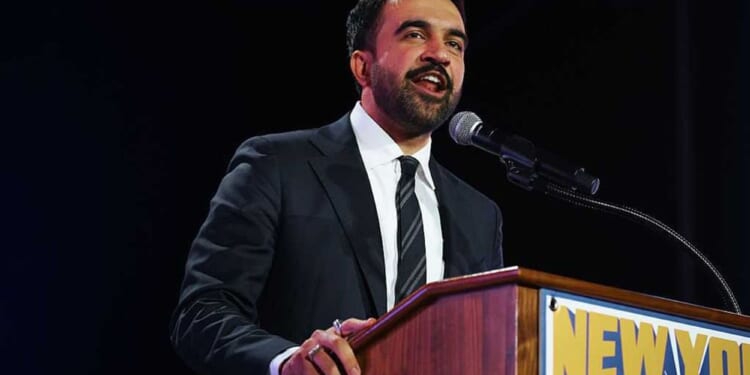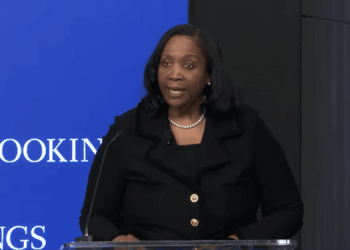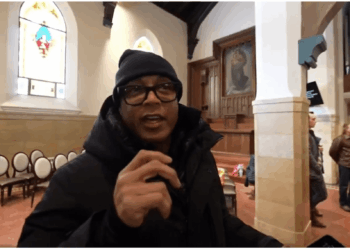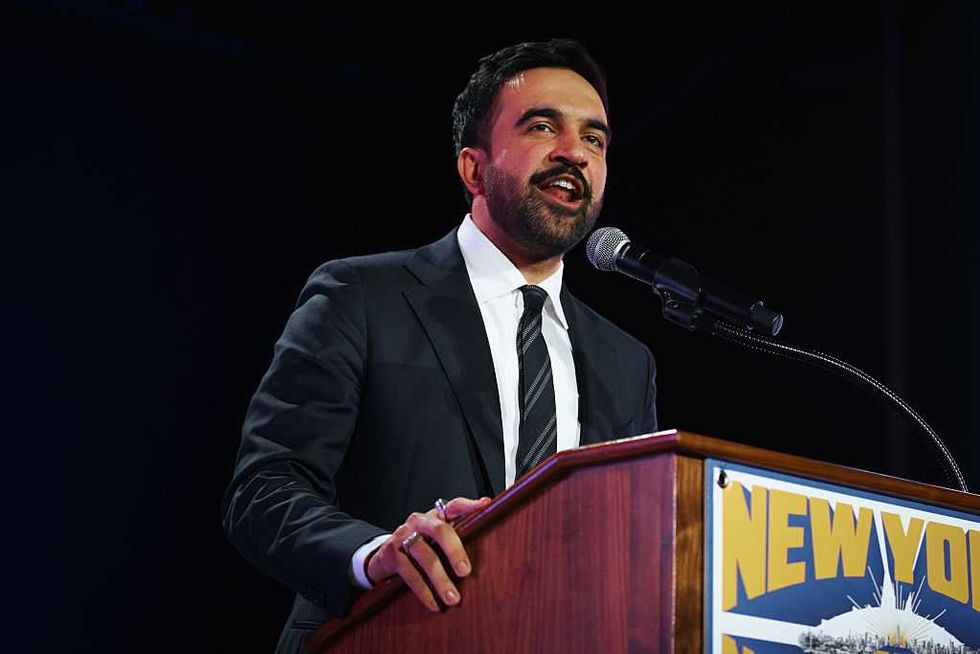
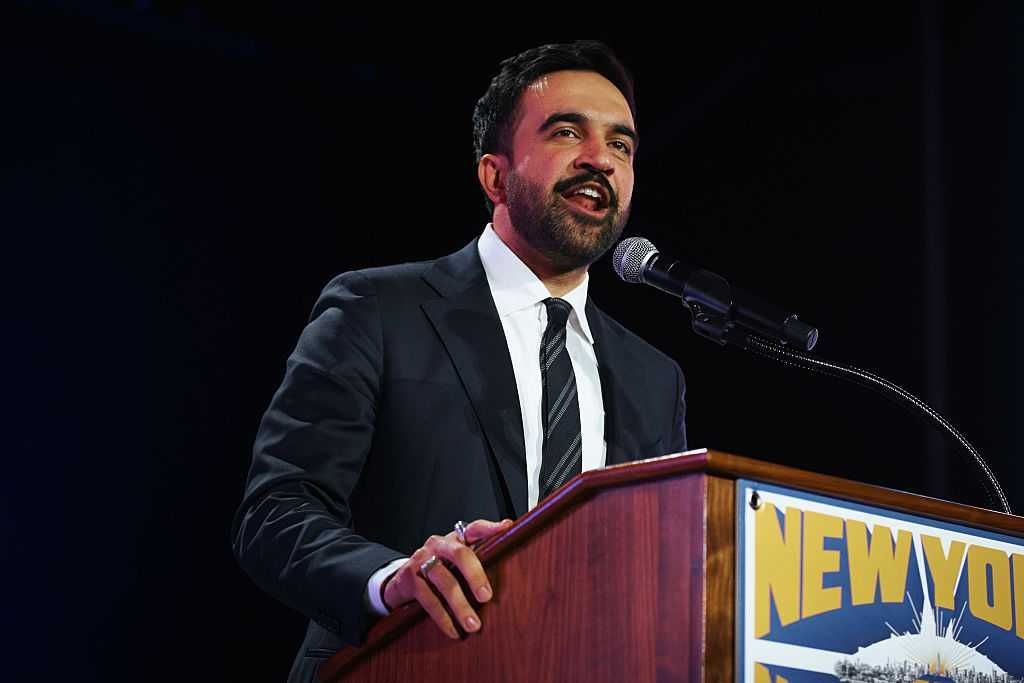
At a packed rally in Queens on Sunday, New York mayoral candidate Zohran Mamdani reinforced his far-left vision for remaking America’s largest city.
Among his proposals: government-run grocery stores, free public transportation, 200,000 government-built apartments, universal childcare, and a rent freeze for the city’s one million rent-stabilized apartments.
Only a socialist could argue that taking away people’s property rights and centralizing power enhances individual freedom.
The price tag for Mamdani’s most ambitious ideas comes to nearly $7 billion a year — more than the city’s entire police budget.
Mamdani, a self-described democratic socialist, shared the stage with Sen. Bernie Sanders (I-Vt.) and Rep. Alexandria Ocasio-Cortez (D-N.Y.), two of the country’s best-known socialist stars. Both praised Mamdani as the future of progressive politics.
Like Sanders and Ocasio-Cortez, Mamdani claims he can fund his agenda by taxing the rich and targeting corporations. He wants to raise the top corporate tax rate from 7.25% to 11.5% and increase the city’s income tax by two percentage points for anyone earning $1 million or more.
Those ideas have energized his base and helped him surge in the polls. Yet his lead is not secure. Critics from both parties warn that Mamdani’s high-tax, high-spending platform would drive wealthy residents and businesses out of New York, worsening the city’s economic and fiscal problems.
But Mamdani’s biggest obstacle isn’t fiscal — it’s philosophical.
Even in deep-blue New York, voters hesitate to hand power to a democratic socialist. Socialism’s record is clear: It limits freedom, crushes economies, and breeds instability.
To ease those fears, Mamdani’s campaign has begun to reframe socialism as a path to freedom rather than its enemy. At his rally over the weekend, he told the crowd: “No New Yorker should ever be priced out of anything they need to survive. … It is government’s job to deliver that dignity.” Then he added, “Dignity, my friends, is another way of saying freedom.”
In Mamdani’s view, freedom comes from the state guaranteeing life’s essentials — food, housing, transportation, childcare. To provide those things, government must seize and redistribute private wealth. Mamdani calls this process “delivering dignity,” which he equates with liberty itself.
That logic turns freedom on its head. Only a socialist could argue that taking away people’s property rights and centralizing power enhances individual freedom.
This rhetorical sleight of hand is not new. It’s straight from the socialist and communist propaganda of the 20th century.
Article 39 of the 1936 Soviet Constitution claimed that socialism “ensures enlargement of the rights and freedoms of citizens.” Fidel Castro’s 1976 Cuban Constitution promised “the freedom and full dignity of man” through a state guarantee of social services.
Even Joseph Stalin cloaked authoritarianism in the language of freedom. In a 1936 interview, he insisted that socialism was built “for the sake of real personal liberty,” arguing that “real liberty can exist only where there is no unemployment and poverty.”
Intentionally or not, Mamdani’s speeches echo those same lines. And he’s far from the first democratic socialist to do so. Julius Nyerere in Tanzania, Olof Palme in Sweden, and Aneurin Bevan in Britain all used similar arguments to justify state expansion in the name of “freedom.”
RELATED:Why Zohran Mamdani will be ‘one of the most catastrophic mayors ever’
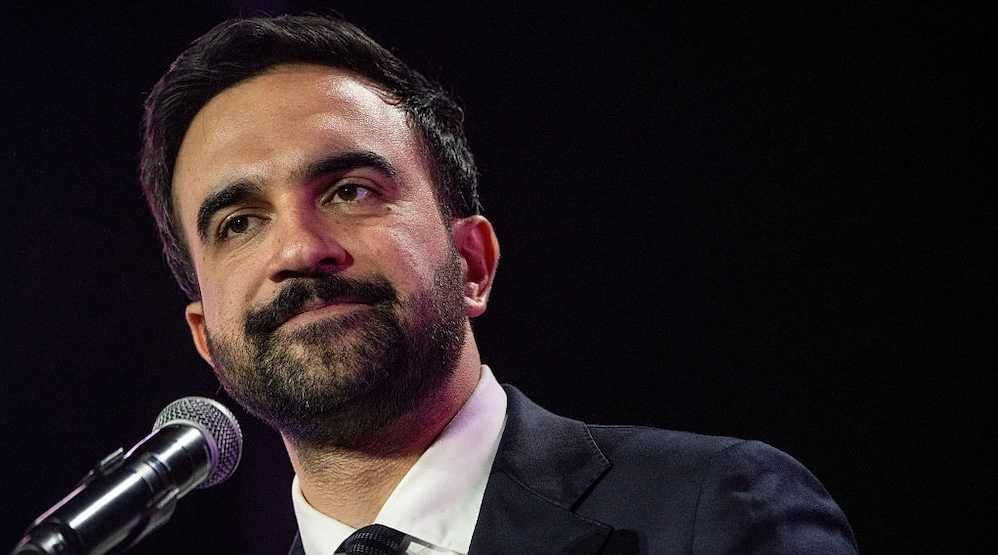 Photo by Victor J. Blue/Bloomberg via Getty Images via Getty Images
Photo by Victor J. Blue/Bloomberg via Getty Images via Getty Images
That’s no coincidence. Mamdani is a student of socialist history, and his rhetoric mirrors the Marxist premise that true liberty requires the abolition of private property. In his 1844 essay “Private Property and Communism,” Karl Marx wrote, “The abolition of private property is therefore the complete emancipation of all human senses and qualities.”
Every socialist movement since has repeated that creed, always promising “real freedom” while consolidating control over wealth, work, and speech.
History shows what those promises yield: less freedom, not more. The more government collectivizes decision-making, the less room individuals have to think, speak, or prosper.
New York City has enormous problems, but reviving the century’s old, failed ideas of socialism won’t solve them. If anything, they’ll accelerate decline.
The city’s revival depends on the principles that built it into a global capital in the first place — limited government, free markets, low taxes, and the liberty to rise through one’s own effort.
If Mamdani truly wants to bring dignity and freedom to New Yorkers, he should reject the hollow slogans of socialism and embrace the real promise of liberty that made America — and New York — great.

